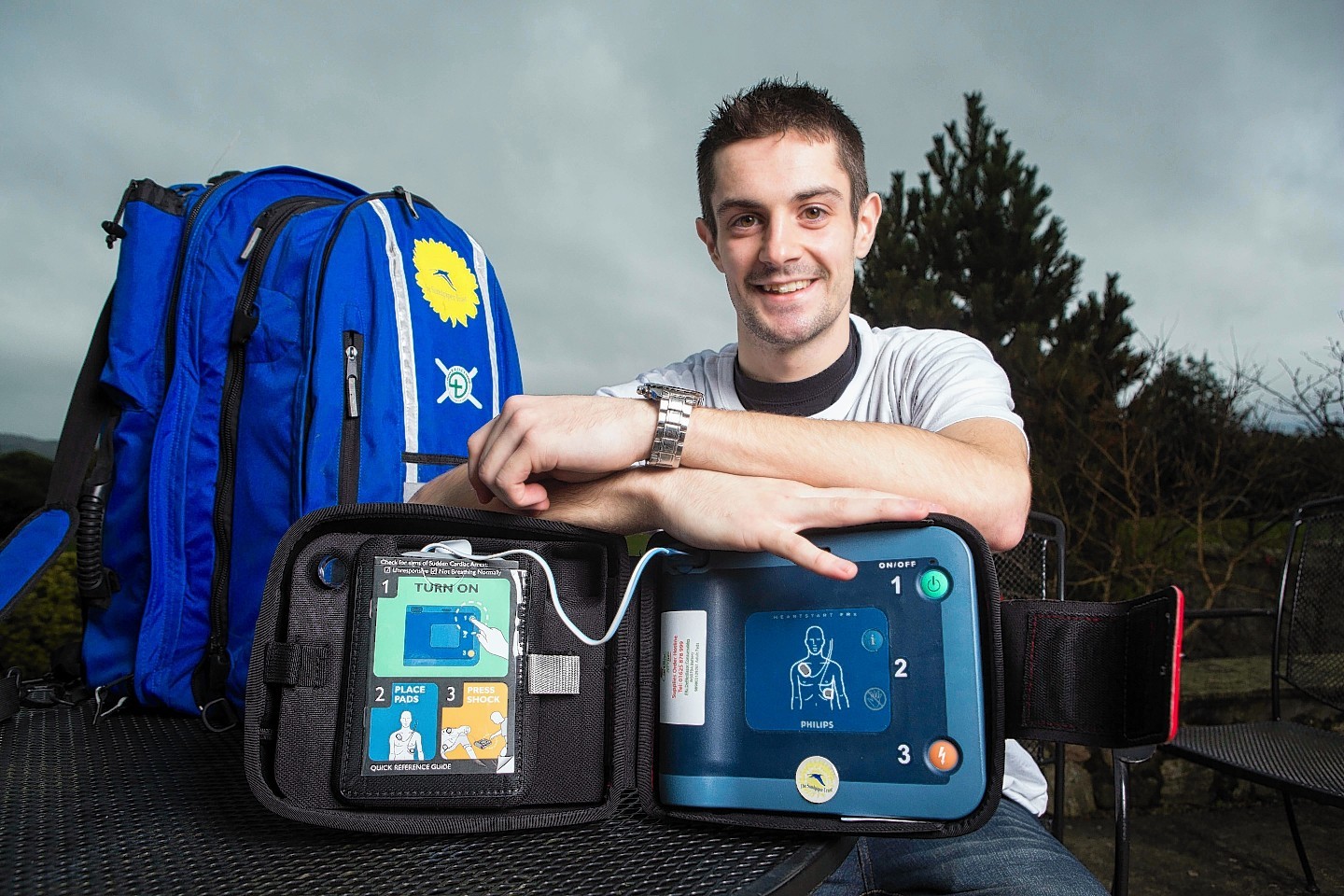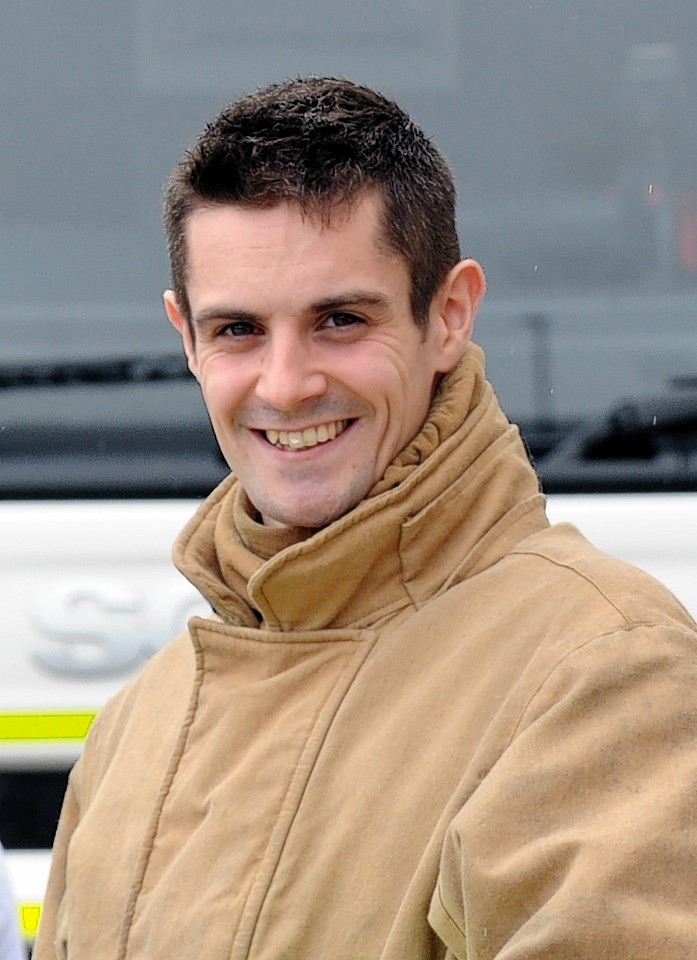A fireman told today how he was pulled back from the brink of death by his brother after he suffered a cardiac arrest in his bed while he was sleeping.
The family of Greg Wilson, 24, found him collapsed on the floor of his bedroom after his younger brother Dominic, 18, heard a loud thud coming from the room.
Luckily, their older brother Graham, 27, worked as an emergency medicine doctor at Raigmore Hospital and was also in the house at the time. He leapt into action as soon as he realised Greg had stopped breathing.
Knowing it was a life or death situation, Graham started giving his brother CPR and continued battling to save his life for 10 minutes until an ambulance arrived at the family home in Inverness.
Paramedics used a defibrillator to revive Greg and he was then rushed to hospital for treatment. He was placed in an induced coma to give his body a rest and was diagnosed with a rare condition following tests.
Greg, of Aberdeen, said: “I had a rare heart condition called Wolff-parkinson Whyte syndrome, an electrical physiological problem where the electricity of your heart gets interrupted by an accessory pathway.
“Basically my heart short circuited itself, it sped up, it got too fast and just stopped.
“I was back home on my days off from work and was staying at my mums. I was in bed at the time when it happened. My brothers found me collapsed on the floor in my room.
“My little brother heard me having difficulties and initially thought I had fallen out the bed.
“Thankfully for me my eldest brother is an emergency doctor and he was working at Raigmore Hospital in Inverness at the time and was in the next room.
“He came in and found me on the floor. Initially I was breathing but I stopped after he got beside me.
“He went into doctor mode and resuscitated me for about 10 minutes until the ambulance arrived.”
Greg is now backing the Sandpiper WILDCAT project, a medical charity which is fundraising to set up a network of community first responders trained and equipped to use CPR and defibrillators.
The charity hopes to raise the survival rates of emergency heart problem patients living in remote areas across Grampian to Edinburgh levels with their campaign.
The Sandpiper Trust has already raised a third of the 738,000 pounds needed to supply the equipment and train up volunteers for 50 locations across the region.
Greg said many people were not aware of the difference between a heart attack and a cardiac arrest which can be suffered by healthy patients of any age.
And he said he was lucky to have survived his ordeal.
He said: “Without my brothers intervention and the defibrillator being there so soon there is absolutely no chance that I would be here.
“That’s why I’ve got involved with the WildCat project and am championing it.
“When I woke up up in hospital I had no idea of what had happened to me. I was put into an induced coma and put into intensive care. They were worried about the damage caused to my brain from not breathing for 12 minutes.
“I was on a cocktail of drugs and couldn’t really comprehend what had happened. It was quite surreal.
“My eldest brother did all the CPR but my younger brother was the one who found me and raised the alarm. It’s difficult to say that my eldest brother saved my life, I credit them both for that.
“Without my little brother, there would have been more of a chance that I wouldn’t have been here.”
Greg said he still couldn’t comprehend how difficult it must have been for his brothers and feels guilty for putting them through the ordeal on October 4, 2012.
He said: “Part of the reason I have guilt for my big brother is because he was literally dealing with a situation where I had died and he was trying to get me back.
“It is silly because I couldn’t help what happened.
“I can’t verbalise the gratitude and respect that I have for them.
“We were always very close but it’s definitely brought us closer together.”
The fireman, who has helped save many people’s lives himself during his career, said he also feels guilty for surviving the condition when others haven’t been so lucky.
He spent 21 days in hospital and was thankfully cured of the condition and allowed back to work.
He now wants to do as much as he can to raise awareness of the heart disorder and campaign for more communities to get access to life-saving defibrillators.
He added: “Within the first 10 minutes of stopping breathing, your chances of survival drops every minute without early intervention.
“Every minute counts.
“I can’t over emphasise the importance of having defibrillators and people trained in CPR.”


